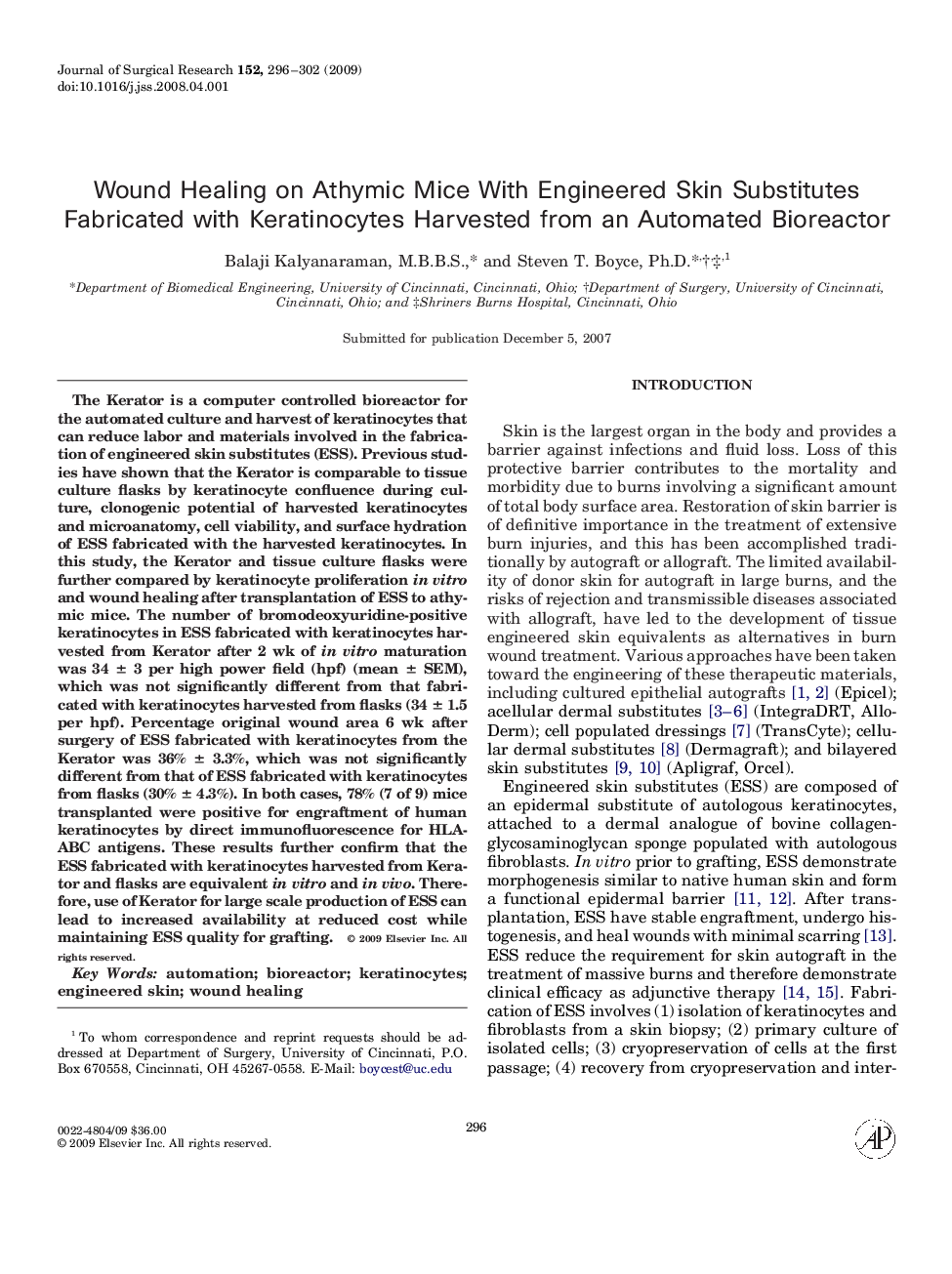| Article ID | Journal | Published Year | Pages | File Type |
|---|---|---|---|---|
| 4303890 | Journal of Surgical Research | 2009 | 7 Pages |
The Kerator is a computer controlled bioreactor for the automated culture and harvest of keratinocytes that can reduce labor and materials involved in the fabrication of engineered skin substitutes (ESS). Previous studies have shown that the Kerator is comparable to tissue culture flasks by keratinocyte confluence during culture, clonogenic potential of harvested keratinocytes and microanatomy, cell viability, and surface hydration of ESS fabricated with the harvested keratinocytes. In this study, the Kerator and tissue culture flasks were further compared by keratinocyte proliferation in vitro and wound healing after transplantation of ESS to athymic mice. The number of bromodeoxyuridine-positive keratinocytes in ESS fabricated with keratinocytes harvested from Kerator after 2 wk of in vitro maturation was 34 ± 3 per high power field (hpf) (mean ± SEM), which was not significantly different from that fabricated with keratinocytes harvested from flasks (34 ± 1.5 per hpf). Percentage original wound area 6 wk after surgery of ESS fabricated with keratinocytes from the Kerator was 36% ± 3.3%, which was not significantly different from that of ESS fabricated with keratinocytes from flasks (30% ± 4.3%). In both cases, 78% (7 of 9) mice transplanted were positive for engraftment of human keratinocytes by direct immunofluorescence for HLA-ABC antigens. These results further confirm that the ESS fabricated with keratinocytes harvested from Kerator and flasks are equivalent in vitro and in vivo. Therefore, use of Kerator for large scale production of ESS can lead to increased availability at reduced cost while maintaining ESS quality for grafting.
